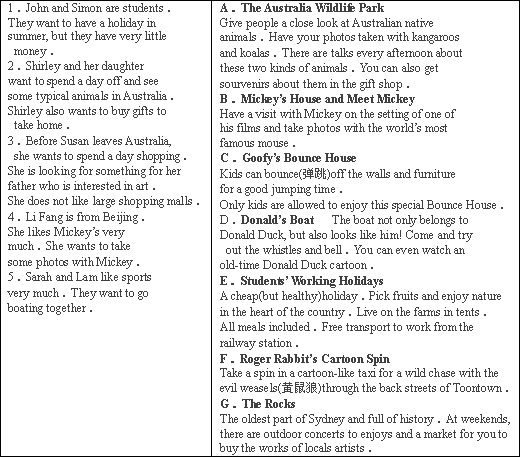��Ŀ����
|
����Ķ��������Ƕ�5���˵�������������7����棬��Ϊÿһλѡ�����ʺϵ�1���森
| |||

����Ķ��������Ƕ�5��ѧ�����ݽ�ʱ�����������������������Ϊÿ��ѧ��ѡ��һ�����ʵĽ��飬��������϶�Ӧ��Ŀ��ѡ��ѡ��Ϳ�ڡ�
|
1.Paul: I don��t think I can talk fluently(����) because it��s difficult for me to remember all the words. 2.Billy: When I come face to face with the audience, where should my eyes fall upon? Do I have to look front, or look around from time to time? 3.Amy: When I am talking, I can��t help waving my hands, for I think it can help me express what I want to say better. But my classmates say I look funny and foolish by doing this. 4.Betty: I know that it��s not right to speak fast. But I am afraid that I can��t finish my talk in the given time if I speak slowly. 5.Tony: Should I talk in American English or British English? |
E. You should know you and most of the people you talk to are different in many ways. Some of them may not know what you are talking about. Then speak to them on their terms and in their languages. F. Concentrate on what you want to say. If you are always paying attention to gestures(����),you will feel uncomfortable. G. It��s true that there are some differences between American English and British English, but they��ll not cause much difficulty for listeners, so just speak the way you��re used to. |
| ����Ķ��������Ƕ�5������μӵĻ��������������7����ļ�飬��Ϊÿһ����ѡ�����ʺϲ� �ӵ�1���������𰸵���ĸ����������ǰ�������ڡ� | ||
|

